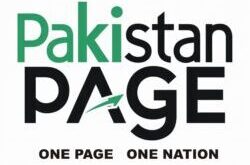PIDE’s 4th RASTA conference sparks innovative solutions for Pakistan’s bright future
ISLAMABAD: A two-day Research for Social Transformation and Advancement (RASTA) conference, organized by the Pakistan Institute of Development Economics (PIDE) started here on Tuesday to showcase pivotal research findings in critical sectors like education, healthcare, exports and investment.
Attended by policymakers, academics, and industry leaders, the conference underscored the importance of research-driven strategies in shaping Pakistan’s future.
Project Director Dr Faheem Jehangir presented a detailed RASTA Progress Report, highlighting that the conference would feature five technical sessions and two showcase sessions, covering topics such as food and agriculture, fiscal management, and more.
These sessions brought together 17 research teams to present their findings, fostering an extensive knowledge network and promoting high-quality, evidence-based policy research.
Dr Nadeem Ul Haque, Chairman of RASTA and Vice-Chancellor of PIDE, emphasized the essential role of research in policy development.
He noted that the conference featured presentations of cutting-edge research, including studies on the mental health and well-being of healthcare professionals, the potential of Pakistan’s IT industry for software export growth, and the impact of government policies on olive production.
In addition to the technical sessions, the conference included showcase sessions highlighting significant projects, such as improvements in Pakistan’s electricity billing system and findings from the 2024 round of the Pakistan Panel Household Survey (PPHS).
Dr Haque elaborated on RASTA’s mission, describing it as Pakistan’s largest and most comprehensive social sciences research network, dedicated to bridging the gap between research and policy to enhance public policy and guide government decision-making.
The first session of the conference, titled “Education and Healthcare,” featured an array of critical insights into the challenges and opportunities within Pakistan’s pharmaceutical, mental health, and higher education sectors.
Kazi Afaq Ahmed from the Institute of Business Management, Karachi, opened the session with a presentation on the pharmaceutical industry in Pakistan. His study provided an in-depth analysis of the manufacturing of Active Pharmaceutical Ingredients (API), emphasizing the country’s heavy reliance on imports.
Following this, Mir Muhammad Shah from Sukkur IBA University presented a study focusing on the mental health challenges faced by healthcare professionals in Pakistan. Shah’s research underscored the severe impact of resource shortages, such as inadequate staffing and insufficient mental health support systems, which contribute to the high levels of stress and burnout among healthcare workers.
Aamer Raza from the University of Peshawar provided a critical examination of the 18th Amendment’s impact on Pakistan’s higher education system. His analysis focused on the governance and funding challenges that have emerged since the devolution of powers to the provinces.
The session concluded with closing remarks by Rafiullah Kakar, Member of the Social Sector, Ministry of Planning, Development & Special Initiatives, who synthesized the insights from the presentations and emphasized the need for integrated policy approaches to address the multifaceted challenges in education and healthcare.
The second session, focusing on “Pakistan’s Export Potential,” was a deep dive into the opportunities and challenges within the halal beef and IT industries.
Shahzad Kouser from COMSATS University, Islamabad, began the session by analyzing the global demand for halal beef and Pakistan’s potential to become a leading exporter. He identified key challenges, including adherence to international standards, logistical bottlenecks, and limited market access, which currently hinder Pakistan’s competitiveness in the global market.
Following this, Naveed Arshad from LUMS, Lahore, presented a compelling case for the IT sector as a significant driver of economic growth. Arshad highlighted the untapped potential in software exports, emphasizing the need for strategic investments in education and infrastructure.
In the RASTA Showcase-I session, Afia Malik, Senior Research Economist at PIDE, presented her research on improving efficiency in Pakistan’s electricity billing system. Malik’s study explored innovative approaches to reduce energy wastage and enhance the financial health of the energy sector.
The final session of the conference, centered on “Investment Strategies,” featured critical analyses of how Pakistan can attract and retain investment, particularly in light of recent economic challenges.
Syed Twangar Hussain Kazmi from Torque Communities, Islamabad, provided a roadmap for leveraging Foreign Direct Investment (FDI) to spur local innovation and economic growth. Drawing on examples from East Asian economies, Kazmi highlighted the importance of creating a favorable investment climate through policy stability, infrastructure development, and innovative financing mechanisms.
Abdul Wahid from NUML, Islamabad, discussed the alarming trend of decapitalization in the Pakistan Stock Exchange (PSX). Wahid identified several factors contributing to this trend, including regulatory inconsistencies, political instability, and market volatility, which have driven firms to delist.
Nabila Aftab from the University of Peshawar examined the impact of political instability on corporate investment decisions in Pakistan.
The session concluded with remarks from Ahmed Waqar Qasim, Senior Research Economist at PIDE, who emphasized the need for sustained policy efforts to attract and retain investment in Pakistan. Qasim called for a holistic approach to economic reform that includes both short-term stabilizing measures and long-term growth strategies.

